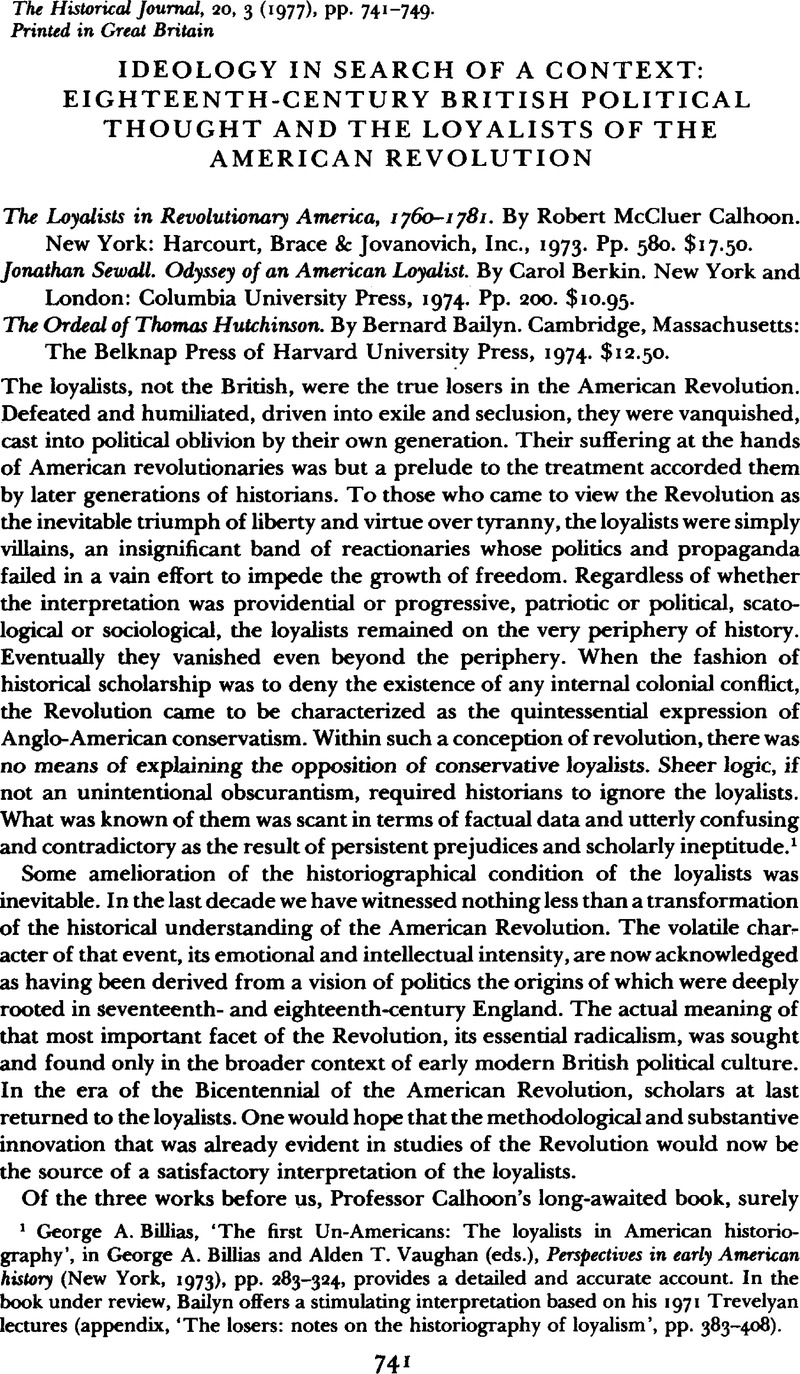No CrossRef data available.
Published online by Cambridge University Press: 11 February 2009

1 Billias, George A., “The first Un-Americans: The loyalists in American historiography”, in Billias, George A. and Vaughan, Alden T. (eds.), Perspectives in early American history (New York, 1973), pp. 283–324Google Scholar, provides a detailed and accurate account. In the book under review, Bailyn offers a stimulating interpretation based on his 1971 Trevelyan lectures (appendix, “The losers: notes on the historiography of loyalism”, pp. 383–408).
2 Hereafter books under review will be cited by page only in the text.
3 Norton, Mary Beth, “The loyalists” critique of the Revolution”, Library of Congress symposia on the American Revolution, I, The development of a revolutionary mentality (Washington, 1972), pp. 127–48.Google Scholar
4 Greene, Jack P., “An uneasy condition: an analysis of the preconditions of the American Revolution”, in Kurtz, Stephen G. and Hutson, James H. (eds.), Essays on the American Revolution (Chapel Hill, 1973), p. 53.Google Scholar
5 Zimmer, Anne Young and Kelly, Alfred H., “Jonathan Boucher: constitutional conservative”, Journal of American History, LVIII (1972), 922.Google Scholar
6 Hutchinson, Thomas [1768], “A dialogue between an American and a European Englishman”, edited by Bernard Bailyn, Perspectives in American History, ix (1975), 343–410.Google Scholar
7 Wood, Gordon S., The creation of the American Republic 1776–1787 (Chapel Hill, 1969), pp. 24, 27, 59, 63Google Scholar; Burnett, Thomas, An essay upon government: or, the natural notions of government, demonstrated in a chain of consequences from the fundamental principles of society (London, 1716); a second, authorized edition of Burnett appeared in 1726, while a curious reprint, now very rare, was made in 1751.Google Scholar